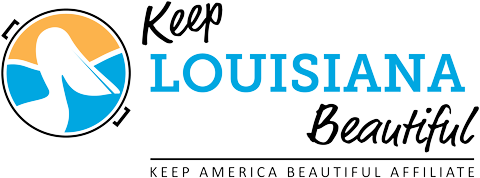Posted on Aug 15, 2022 | Blog,News
For Decades Stormwater Has Managed Us. Act 228 Allows Us To Manage It.
Learn about stormwater and how recent legislation declaring it a utility can benefit you and your community.
Guest post by Marie Constantin, Louisiana Stormwater Coalition, Baton Rouge
In some circumstances, the ground could absorb water from a light shower without relying on a city-wide system of ditches, outfalls, canals, and storm drains to carry off the excess. However, when big storms move in, dumping massive amounts of rainfall in short periods of time, the runoff from the impervious rooftops and parking lots will send the excess water to a low area, taking with it litter, parking lot oils, and organics. Without a robust stormwater management program in place to control where all that water and debris will go, that low place could be your house or business.
These unmanaged disasters not only cause our collective net worth to drop city-wide, but quality of life goes down as we watch insurance rates double and triple. Few from other states willingly move to a state that easily floods or one whose rivers, lakes, wetlands, and bayous are spoiled from the untreated payload of pollutants stormwater delivers. If enough flooding occurs, a community will see out-migration and often it is the folks who can afford it who move first.
While this may be true of urban areas, it may not be the case for agricultural or horticultural acreage, where most stormwater can be absorbed or sent into a natural green space or a low area like a bayou or a lake. Stormwater sent to these areas is often welcomed because it usually recharges the water table and often does not deliver a payload of litter, parking lot oils, and organics that must be managed, lest they clog the system and cause flooding.
For decades, stormwater has been managing us here in Louisiana when we should have been managing it, especially since we hold the number one slot in annual rainfall. Tallahassee, Florida, usually number 4 in rainfall, was once like us, losing homes to floods and covered in filth due to the litter the floods bring. Their crisis caused them to set up one of the first stormwater management programs in the country and today the city thrives. In Miami-Dade County, their program brought in $300 million over the last 10 years. Because they have been at it for decades, last year residents paid only $3.50/month. That won’t be the case for Baton Rouge because we are 30 years behind the times and we are living with an outdated stormwater infrastructure that was never built to carry today’s loads nor the single-use items that clog the system. You must wonder how many homes would not have flooded in the devastating 2016 flood if Baton Rouge collected $300 million over a 10-year period.
When the Louisiana Stormwater Coalition (LSC) pushed House Bill 713 through the legislature this Spring and the Governor signed it into law as Act 228—declaring stormwater to be a utility—Louisiana joined 41 other states that manage their stormwater with a permanent funding vehicle, providing quality-of-life tools others have had for decades. Because this is a local option, a community can decide if they want a program and they can customize their program to meet their unique needs. For example, they can buy street sweepers to keep litter and other floatables from clogging their drainage system. Communities can use the permanent funding to build out or update green and grey infrastructure and they will have the money to hire dedicated staff trained in cleaning out their systems and helping them to pass water quality standards set by the EPA.
When communities get stormwater under control, they can not only experience less flooding and less spoiling of their watersheds, but they will see how being a safer and cleaner community is in reality nothing but an economic development boon.
The LSC is lining up speakers for the Fall to educate leaders on how to begin to get on board with a stormwater management program. You can stay current on LSC’s efforts by visiting www.louisianastormwater.com.
Photo credit: Louisiana Stormwater Coalition


